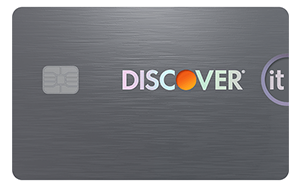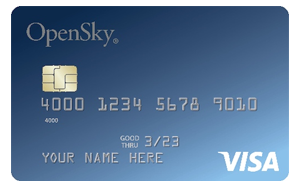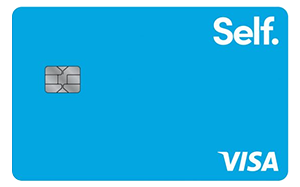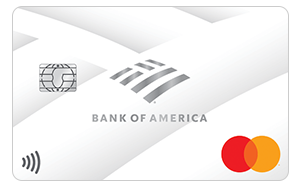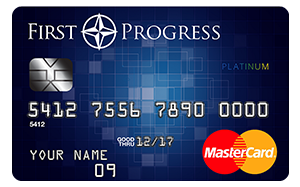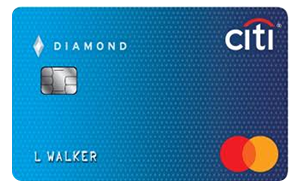If you’re just starting out in the world of credit, you may be wondering what your starting credit score will look like. Will your first score be low, high, or somewhere in the middle?
To find out what your credit will look like when you’re first scored, you need to understand what you need to do to get a credit score in the first place and how your credit score is calculated.
Table of Contents
What will your first credit score be?
When you’re just starting to use credit for the first time, you’ll have no credit score whatsoever. However, you’ll get a VantageScore within a month of opening your first credit account (such as a credit card), and you’ll receive a FICO score within 6 months of doing so.
It’s impossible to say exactly what your first credit score will be, but if you don’t make any mistakes with your first credit account, your score will probably be decent. It might be between 580 and 669, which is classed as a “Fair” score in FICO’s scoring model. If you do everything right, your score might even start a bit higher than that.
Why you won’t start out with a zero credit score
Your credit score won’t start out at zero, which is actually lower than any credit scoring model goes. It probably won’t even start at 300, which is the lowest possible credit score in both FICO and VantageScore.
This comes as a surprise to many people, who assume they’ll have to start out at the bottom and work their way up.
Fortunately, just that’s not how credit scoring works; if you manage your first credit account responsibly, you’ll start out with a decent score, and it will only drop that low if you make serious financial mistakes (such as repeatedly missing payments on your account).
You don’t automatically get your first credit score when you turn 18
Contrary to popular belief, you aren’t automatically given a credit score when you turn 18. You need to spend a few months using credit to get a score, no matter how old you are. Fortunately, there are several ways to establish a credit file and begin building credit at 18.
Does everyone start out with the same credit score?
No, not everyone starts out with the same score. Your first credit score will depend on your initial credit performance.
Putting your first score into context
In every major scoring model, credit scores range from 300 to 850, with 300 being a very bad credit score and 850 being a good score.
As we said, it’s impossible to predict exactly what your first score will be. However, if you use your first credit account responsibly—meaning you don’t overuse your credit and you avoid making late payments—you can reasonably expect your score to start in the middle-to-high end of the scale.
For context, the charts below show the range of all of the possible credit scores you can have and how they’re classified by each of the main credit scoring companies.
FICO Score Range

VantageScore Range

How is your starting credit score calculated?
Your first credit score is calculated the same way it would be calculated at any other stage of your credit journey.
Both FICO and VantageScore create your score by evaluating five factors:
- Payment history: This is a record of whether you’ve historically paid your bills on time or you’ve missed a lot of payments.
- Credit utilization: How much of your available credit you’re using compared to your credit limit on your credit cards and other credit accounts. Using less credit is better for your score.
- Length of credit history: How long you’ve been using credit (i.e., your “credit age”) and how old your credit accounts are.
- Credit mix: How many different types of credit accounts you have.
- New credit: Whether you’ve recently applied for or opened new credit accounts, such as credit cards or loans.
The graphs below show how FICO and VantageScore weight each factor.
FICO Scoring Factors

VantageScore Scoring Factors

How the scoring factors affect your first credit score
As you can see, in both models, your payment history and credit utilization together account for around 60% of your credit score in both models.
If you pay attention to both of these factors, you have a very good chance of making your first credit score a good one.
Specifically, make sure to:
- Never miss payments: Failing to pay your credit card bill even one time can be deadly to your score. If you’re not sure you’ll be able to pay off your credit card on time, avoid using it until your finances are more stable.
- Use under 30% of your credit limit: The credit scoring models will reward you if you keep your credit utilization rate below 30%, meaning that if you have a card with a $1,000 credit limit, you shouldn’t carry a balance of more than $300 on it. If you can get your rate under 10%, that’s even better.
Credit age: the main difficulty in achieving a good first credit score
When you’re just starting out, your potential credit score will be limited by your short credit history. As noted, the models reward you for having a longer history of using credit (measured by the average age of your credit accounts).
There isn’t much you can do about this—you’ll just have to wait until your accounts get older. However, your credit age is a relatively unimportant scoring factor, and if you do everything else right, it won’t depress your score too much.
How to check your credit score for the first time
If you already have a credit account, such as a loan or credit card, then it’s possible that your creditor will provide you with your credit scores for free.
If they don’t, then you have a couple of other options:
- Purchase your FICO score: You can get your FICO credit score straight from FICO’s website, although it won’t be free. They offer different packages that you can choose from.
- Get your VantageScore for free: VantageScore offers free access to their credit scores, although you’ll have to get your score through one of VantageScore’s partners instead of from them directly.
- Sign up for credit monitoring: You can also sign up for a credit-monitoring service, which will give you access to your credit scores and help you protect your credit by giving you updates about your credit activity so that you can spot fraud or identity theft early on.
Bear in mind that you likely have different credit scores with FICO and VantageScore, and simply looking at your VantageScore might not give you an accurate idea of your borrowing power. The vast majority of lenders (over 90%) will look at your FICO score when you apply for a new loan. 1
Once you know how to check your credit, make sure you understand how often you should check your credit score. Regular credit monitoring is an important part of establishing and maintaining good credit.
How to build and maintain a good credit score
Although it’ll only take you a few months (or less) to get your first credit score, maintaining good credit is a lifelong journey.
To ensure you stay on the right track, follow these tips for building credit and maintaining a high credit score:
- Always pay your bills on time: Because your payment history is the most important factor contributing to your credit score, repaying your lenders on time each month is one of the most effective ways to establish good credit.
- Keep your spending low: Credit scoring models favor consumers with a low credit utilization rate, so avoid overusing your credit cards, and try not to use more than 30% of your available credit (under 10% is ideal). 2
- Avoid closing credit accounts: Closing credit accounts can actually hurt your score, whereas keeping them open will allow you to continue building credit in the long term.
- Only apply for credit when you need it: It can be tempting to apply for lots of different loans and credit cards once you meet lender requirements, but you’ll find it much easier to manage your credit and finances if you only open accounts that you need.
- Use credit-building tools: Consider becoming an authorized user on someone else’s credit card, getting a credit-builder loan, or using a bill-reporting service like Experian Boost to have ordinary bills added to your credit reports. All of these will give your score a boost.
- Get a secured credit card: If you just recently got your first score, getting a credit card will be difficult. However, you’ll still be able to qualify for a secured credit card, which is a special type of card that requires a security deposit when you open it. Once you’ve used the card for a while, your issuer may be willing to refund this deposit. We’ve listed some secured cards and credit cards for beginning borrowers in the table below.
| Credit Card | Best For | Credit Score | Annual Fee | Welcome Bonus | |
|---|---|---|---|---|---|
| Secured Overall | 300–669 | $0 | Cashback Match | ||
| No Credit Check | 300–669 | $35 | |||
| Beginners | 300–669 | $25 | |||
| No Annual Fee | 300–669 | $0 | |||
| Bad Credit | 300–669 | $49 | |||
| Rebuilding Credit | 300–669 | $0 | |||
| Credit Card | Best For | Credit Score | Annual Fee | Welcome Bonus | |
|---|---|---|---|---|---|
| Secured | 300–669 | $0 | Cashback Match | ||
| Unsecured (No Deposit) | 300–669 | $39 ($0 for the first year if you set up autopay) | |||
| Beginners | 300–669 | $49 | |||
| Students | 580–739 | $0 | Cashback match | ||
| No Annual Fee | 300–669 | $0 | |||
| High Approval Odds | 300–669 | $35 | |||
| Building Credit | 300–669 | $0 | |||
Whatever strategy you pick, be sure to use all of your credit accounts responsibly and read up on credit-building best practices. Over time, you’ll gain a deeper understanding of how credit works. You’ll then be able to set long-term goals for improving your credit score so that you can take advantage of all the benefits of good credit.
Takeaway: Your first credit score will be calculated based on your initial credit activity.
- You aren’t automatically given a credit score when you hit 18, and your score won’t start at zero. Instead, it’ll be calculated based on the standard credit scoring factors.
- You get your first credit score only when you meet certain criteria. FICO requires that you’ve had at least one credit account for 6 months or more.
- The lowest possible credit score you can have is 300, although your score probably won’t start off that low.
- Your credit score is calculated based on several factors, including your payment history, credit utilization rate, length of credit history, credit mix, and search for new credit.
- Exercise good financial management to build and maintain a good credit score.

